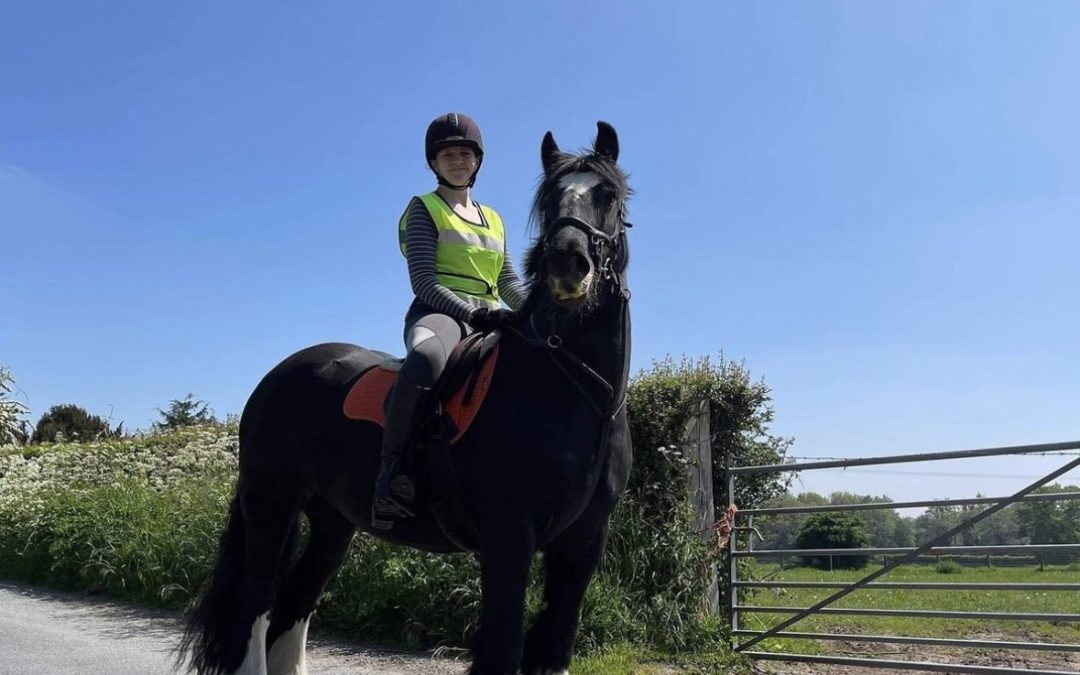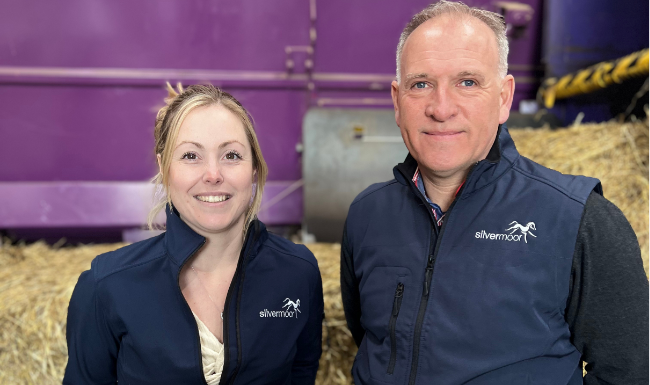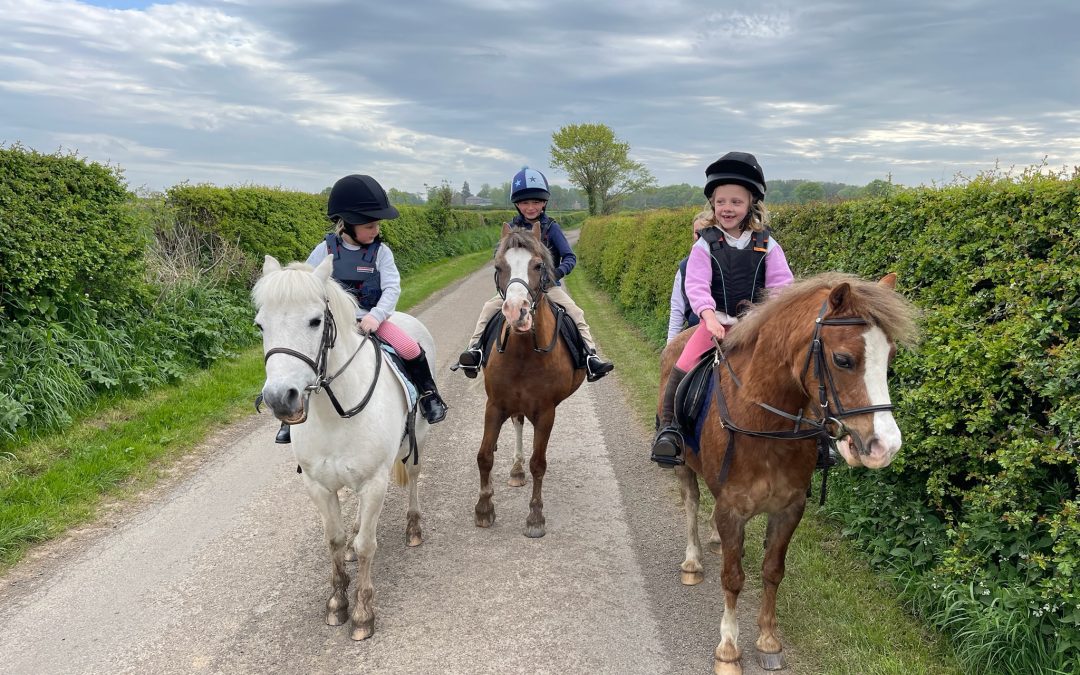We decided to write this blog as it is a topic close to our hearts. We’ve had first hand experience with the huge benefits that horses and riding can bring to those in our families who are neurodiverse, and we had a feeling we weren’t the only ones! When we published a post on our social media asking for other people’s experiences, we were blown away by the response. So many of you commented, messaged and got in touch. It’s clear that we have an enormous debt of gratitude to our four legged friends (and not just horses either), as they provide a unique and powerful form of therapy. We’d also never considered it before, but there are also benefits to be felt from tasks such as mucking out (really!), and from the sense of belonging that comes from being part of a community with similar interests.
Here’s seven benefits we identified, with some of your own experiences. Have your comments been included?…….
- Emotional Connection:
Horses have an innate ability to connect with humans on an emotional level. For autistic individuals who may struggle with social interactions, horses can provide a non-judgmental and accepting presence. The bond formed between a horse and rider can be incredibly therapeutic, fostering feelings of trust, empathy, and companionship.
‘Horses are the absolute best thing to vent to after a bad day. They can’t laugh, judge or gossip. They just listen’ : @morven_ritchie_eventing
‘My horse Henry is very in tune with my Autism and mental health. He often senses when I’m not right and will gently nudge me as if to say ‘do you want to talk about it?’ : @mycobsjourney
- Sensory Integration:
Many neurodiverse individuals experience sensory processing difficulties, where they may be hypersensitive or hyposensitive to certain stimuli. Horse riding can help with sensory integration by providing a controlled and predictable environment. The rhythmic motion of the horse’s gait can have a calming effect, helping to regulate sensory input and promote relaxation.
‘They are a reassuring and calm presence when I’m feeling overwhelmed, especially grooming them which I find relaxing’ : @lauragilchrist93
‘Riding really helps with my sensory seeking, having the rhythm of the canter and hearing the horses shoes are my two favourite things’ : @thatcobcharlie
- Physical Benefits:
Horse riding is a physical activity that engages the whole body. It can improve balance, coordination, and muscle strength. For individuals with motor skill challenges, horse riding can provide a fun and motivating way to develop these skills. The movement of the horse also stimulates the vestibular system, which plays a crucial role in spatial awareness and body control.
‘It’s helped with my coordination and strength as well as my confidence’ : @natalie_rio
- Emotional Regulation:
Autistic individuals often struggle with emotional regulation, experiencing intense emotions that can be difficult to manage. Interacting with horses can help individuals learn to recognise and regulate their emotions. Horses are highly attuned to human emotions and can mirror the emotional state of their riders. This feedback can help individuals become more aware of their own emotions and develop strategies to regulate them effectively.
‘Riding teaches (Grace) perseverance and helps her heal’ : @thejourneyofgraceandteddy
- Social Skills Development:
Horse riding offers opportunities for social interaction and communication. In a therapeutic riding setting, individuals can engage with instructors, volunteers, and fellow riders, fostering social connections and developing social skills. Working with horses also requires clear communication and cooperation, teaching individuals important skills such as assertiveness, empathy, and problem-solving.
‘(Ava) loves going to pony shows and making friends with people she has a shared interest with’ : @little.equestrian.sisters
- Confidence and Self-Esteem:
For many autistic individuals, low self-esteem and a lack of confidence can be significant challenges. Horse riding can be empowering, allowing individuals to develop a sense of mastery and accomplishment. As riders progress in their skills, they gain confidence in their abilities, which can transfer to other areas of their lives. The unconditional acceptance and support provided by horses can also boost self-esteem and foster a positive self-image.
‘He teaches me to be confident, and to just get on with it. He taught me to laugh and stay calm in difficult situations’ : @lucy.x.shamus
- Having a horse helps keep you in a routine
One aspect we hadn’t considered before reading your comments was the benefit to being in a routine. If you own a horse, you can’t pick and choose to be there when you feel like it. You have to be involved, every day, come rain or shine. Several of you, especially in relation to ADHD, identified owning a horse as a brilliant way of teaching you to keep to a routine.
‘If I didn’t have such a commitment my routine would slip so badly and my life would be chaos’ : @equestrianshowingonline
Conclusion:
The therapeutic benefits of horses and horse riding for neurodivergent individuals are undeniable. From emotional connection and sensory integration to physical development and social skills, horses offer a unique and powerful form of therapy. The bond formed between a horse and rider can provide a safe and nurturing environment for personal growth and development. Whether it’s in a therapeutic riding program or simply spending time with horses, the benefits of equine-assisted therapy are truly remarkable.
Thanks to everyone who shared their stories with us. We appreciate every one of your comments.. We hope that by sharing people’s stories we’ve helped people realise that they’re not alone, and that although life can be a struggle, there are humans and animals around us that love us for exactly who we are.
And thanks to Annalee @atypical.equestrian for the photo.





